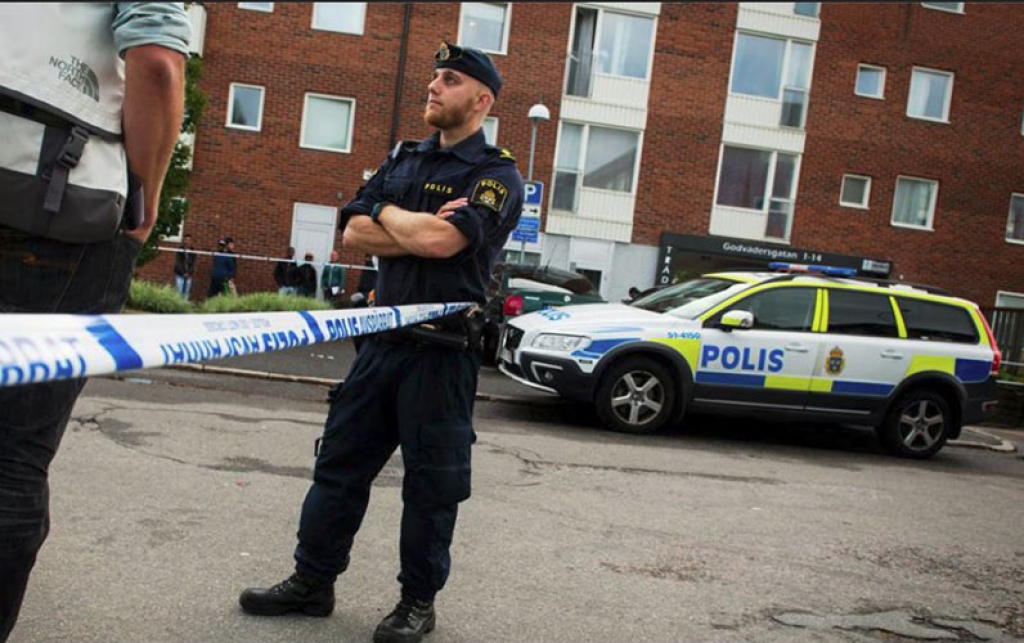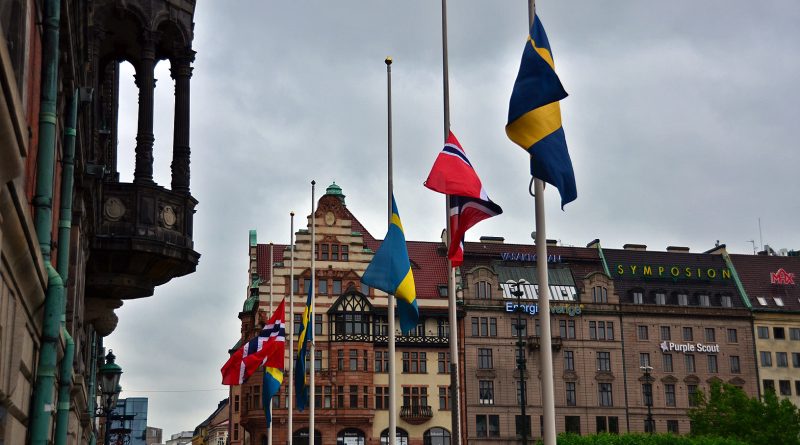The Swedish Question: immigration and the role of media
I do not know any country whose public image has deteriorated so dramatically than that of Sweden in recent years. From being seen as the epitome of successful left-wing governance, a social-democratic model state revered by progressive-minded people around the world, Sweden has now become a touchy, almost taboo topic for many. However, for people on the fringes of the right, the Scandinavian country – which has had a per capita immigration rate higher than Germany – is now a favorite target of mockery; an example of how the combination of mass immigration and political correctness can “wreck a society” in one generation.
Before I argue that there is actually something to say for all this fashionable Sweden-bashing, it is important that I insert a nuance here first; there is a lot of exaggeration taking place, especially online, when it comes to immigration related problems in Sweden. Certain groups who have a vested interest in creating further division in Europe, namely populist anti-EU parties and their backers in the Kremlin, will do anything to put Sweden in a bad light. Any incident is inflated or twisted, new incidents are made up, and the entire country is often simply described as ‘lost’. The logic behind exaggerating immigration problems in Sweden (or in any other EU country) is simple: give Europeans the impression that the situation is out of control, and they will vote in even larger numbers for the populists that promise quick solutions – these are the same populists that want to destroy the EU and are supported by the Russian regime, which has the same aim. Immigration fears played a major role in the Brexit and Trump campaigns of 2016; and like we know now, some of these fears were hyped up by Russian online propaganda efforts.
Even when taking the above into consideration, it is hard to escape the conclusion that there is indeed something going on in Sweden. The most infamous fact about the Scandinavian country is that it has the highest reported number of rapes in Europe. Independent research suggests that a large part of those cases involve 1st and 2nd generation immigrant perpetrators. The Swedish government and police currently refuse to release information about the nationality or ethnicity of suspects, but in an official study from 2005 (English summary pages 70-77) – which was years before the recent spike in migration – men from immigration backgrounds were strongly overrepresented as perpetrators of sexual violence. Moreover, the police has previously been forced to admit that it tried to cover up mass sexual assaults by migrants at a popular music festival in Stockholm. The festival has even been cancelled since 2017 because of the recurring violence against women. Then there is the growing presence of Radical Islamism, with some Swedish Muslims joining ISIS, and the deadly truck attack in Stockholm as the most terrifying examples. Another issue is the existence of so-called “no-go zones”, crime ridden immigrant neighborhoods in cities like Stockholm and Malmo which even the police are said to avoid. And finally, there has been a spike in reports about increased violent organized crime, including a series of bombings with hand grenades and homemade explosives of a variety of targets, including a night club, private homes and a police station in recent months. The suspected perpetrators belong to criminal gangs consisting mainly of 1st and 2nd generation immigrants.

As disturbing as these reports are, the response by international and Swedish media is equally disturbing. Here we have a wealthy, peaceful northern-European country whose government one day decides that borders are passé and that it would be rather selfish not to share the fruits of the labour of previous generations of Swedes with the rest of the world. A decision with unmeasurable consequences for society, which, if the Swedish and international media had fulfilled its “watchdog” role, should have been the subject of intense, critical focus. Instead, most media responded in exactly the same way as they did when Angela Merkel opened the borders of Germany, namely; they uncritically followed the line of the government, turned the influx into a sort of humanitarian extravaganza, hardly reported on the negative side effects of bringing in large groups of mostly young men from the 3rd world, and even demonized people who did not welcome this massive social experiment as “xenophobes” and “racists”. This counts for many established media, especially those in Sweden itself. The political correct tone of Swedish public discourse reminded me of the Netherlands of the 1990’s, a country in which any hint at criticism of anyone ‘foreign’ would immediately lead to social ostracism.
The stiff, naive media response to the migrant crisis and the related problems in Sweden left open a wide gap in critical journalism, which was eagerly filled by the anti-EU far-right to spew its propaganda and blame Sweden’s troubles on the EU. This is a pattern often repeated across Europe, something we addressed on numerous occasions. If established media companies do not deal with difficult topics – like immigration or Islamic radicalism – out of fear of a possible public backlash, they actually help monopolizing these topics by the far-right tabloids, Russian sponsored fake news and internet trolls. Where alarming reports about the problems in Sweden were laughed off at first – especially after Donald Trump parroted an ominous and probably exaggerated Fox News topic in early 2017 – the Stockholm terror attack that came shortly after wiped the grin off many journalists’ faces. What followed was mostly silence. This has led to the current, absurd situation in which negative news about Sweden is rarely picked up anymore by international media, even if it involves hand grenades going off in the dozens. In today’s heated political climate, the act of reporting on immigration problems in Sweden itself risks being branded with the stigma of the far-right. Most media sadly fail to see that their silence on these issues gives fringe outlets a free hand in twisting reports however they want to, which eventually will only increase the severity of the public backlash. In order to avoid such a backlash, and start working towards solutions, it is essential that we face the situation how it truly is.





